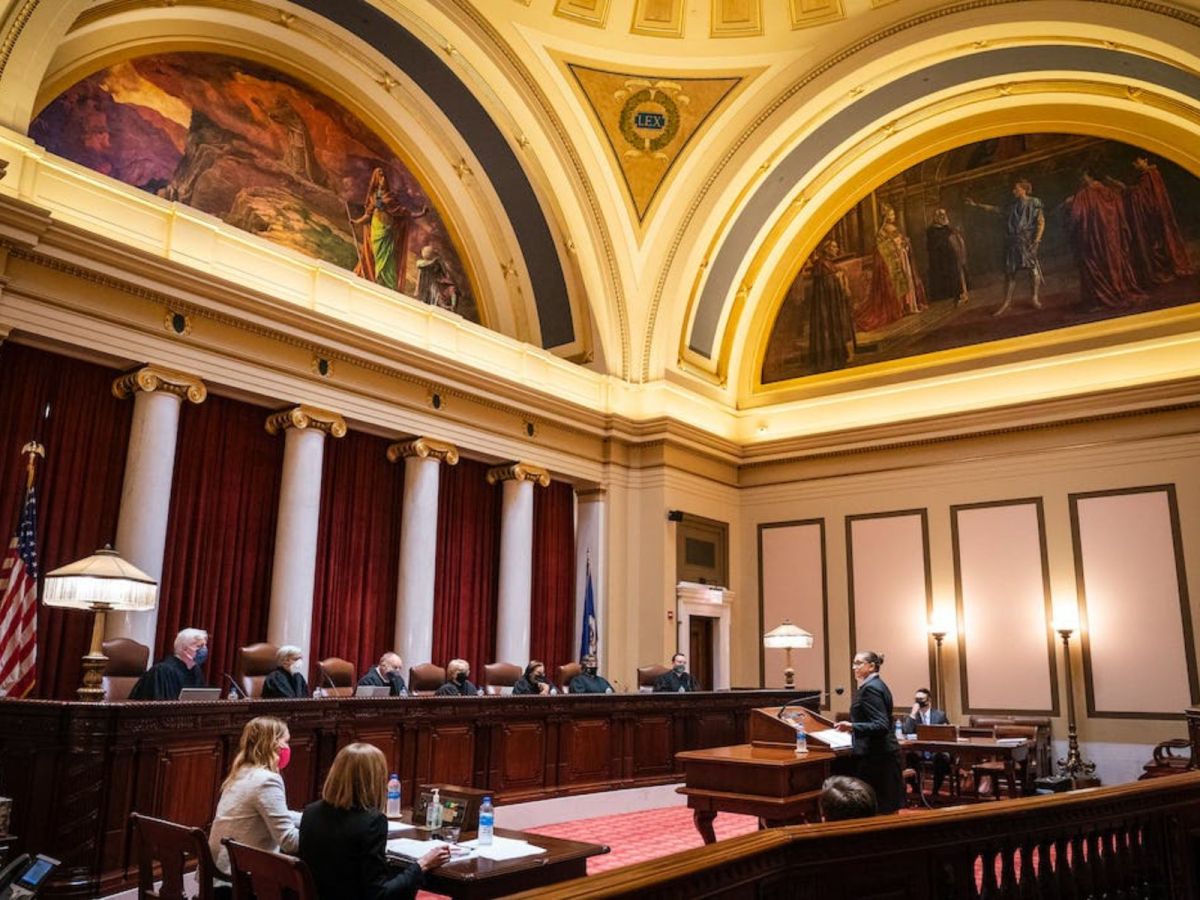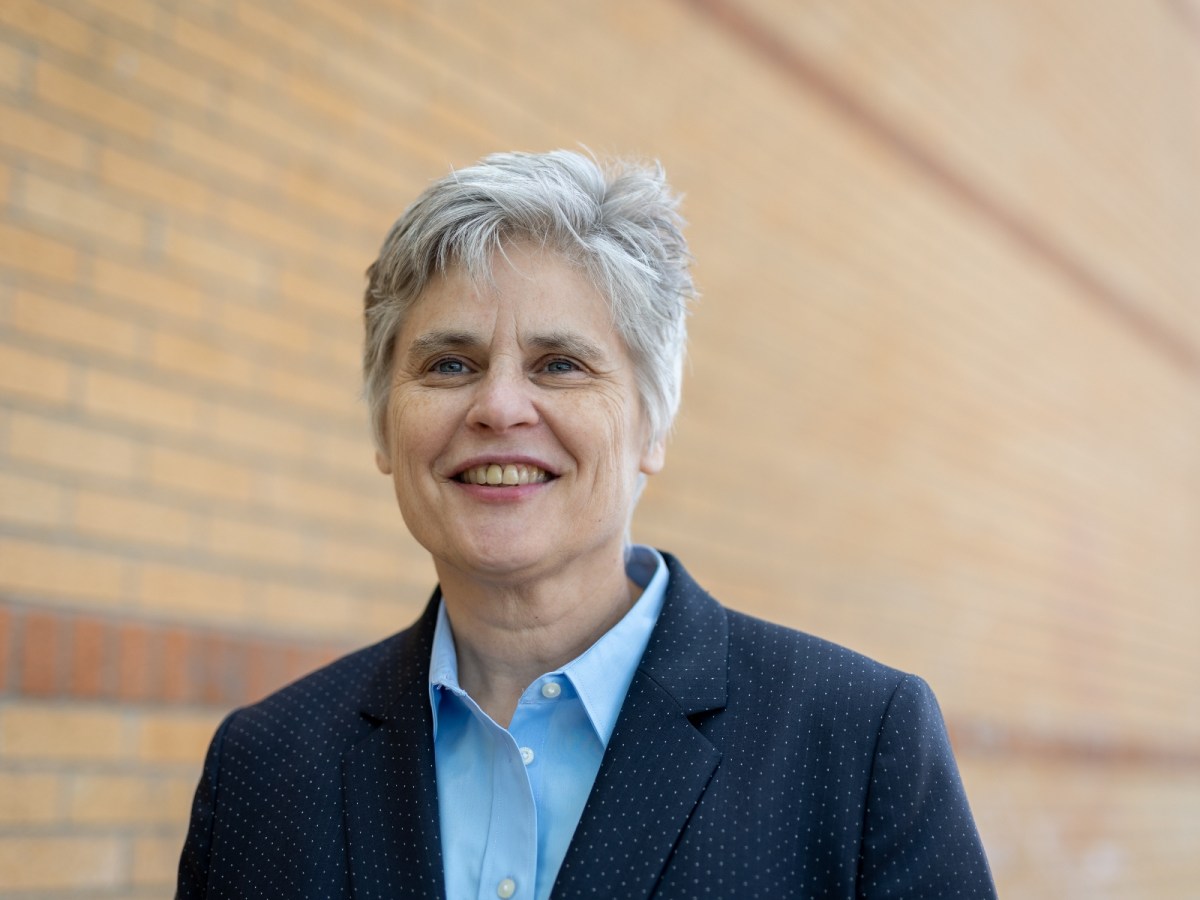Voting has been on Willie Lloyd’s mind ever since he left prison a dozen years ago.
Lloyd served 24 years for a murder stemming from a Minneapolis gang fight in 1988 involving nearly two dozen people. Lloyd, then just 18, was convicted for shooting and killing a man in that fight. Lloyd said he accepted his sentence and did his time.
After getting out of prison in 2011, Lloyd became a homeowner, entrepreneur, and teacher at Summit Academy OIC in Minneapolis, which runs vocational-technical and GED programs. He’s also a husband and a father. But until recently, he was still on parole, so he was not able to cast a ballot.
Still, he quickly involved himself in the political process, phone banking on Broadway Avenue in North Minneapolis during election seasons to get people registered to vote, and driving people to the polls on election days.
“I had to fight against the subliminal message of I’m not good enough, and this was my way of making my presence felt,” Lloyd, 53, recalled in an interview with Sahan Journal. “But after a while, it’s no longer good enough.”
This will change soon. Lloyd recently registered to vote for the first time. A new Minnesota law granting voting rights to convicted felons who are out of prison but on work release, parole, or probation went into effect earlier this month.
The bill passed the Legislature on mostly partisan grounds, with four Republicans joining Democrats in the state House of Representatives and one Republican joining Democrats in the state Senate. Minnesota now joins 13 other states, mostly along the East Coast, and the District of Columbia in allowing ex-felons on parole or probation the right to vote.
Previously in Minnesota, only prior felons who completed their parole or probation could vote. Similar laws still are on the books in 19 states, including traditionally red states like Alaska and Texas and traditionally blue states like Maryland and New Mexico. Only two states—Maine and Vermont—allow people serving time in prison to vote.
Minnesota’s old law barring ex-felons on parole and probation dates back to the state’s founding. Over the years, Minnesota lawmakers added more offenses to the list of felonies.
“As that category of felonies grew bigger, more people got disenfranchised,” said Julio Murphy Zelaya, the community engagement director at the American Civil Liberties Union of Minnesota. “Now a felony ranges from check forgery to intentional murder.”
The new law is expected to grant voting rights to roughly 55,000 Minnesotans who previously didn’t have them.
But how many of them will register and cast a ballot is up in the air. Ex-felons in other states that recently passed similar laws typically still don’t vote. The Marshall Project, for example, found that only one out of four newly eligible ex-felons ended up registering to vote for the 2020 election across four states. The main reason, according to the report, was that they were unaware of their newly granted voting rights.
“Just because a law might be well intended doesn’t mean it’s going to be well executed,” Murphy Zelaya said. So established groups like the ACLU and newer ones like state group Justice Impacted Individuals Voting Efficiently are working to get the word out. That includes outreach online, on the phone, and in person through door knocking and public events. It also hinges on the state Department of Corrections releasing a list of the newly eligible voters so groups know whom to contact. Murphy Zelaya said the ACLU recently requested this information from the state and is expecting to receive the list soon.
“One barrier is we’ve got to get out and find everybody,” said state Representative Cedric Frazier, DFL-Minneapolis, who successfully carried the “restore the vote” bill in the House this year. “Some folks have been out of prison for decades and they move around. The [Department of Corrections] is getting their best-known addresses.”
Separately, the new law requires the Minnesota Secretary of State to send written notices to each of the newly eligible voters informing them that they can now vote.
Compared to other states that recently granted people on parole and probation the right to vote, the Minnesota law is relatively liberal. Florida, for example, doesn’t allow ex felons who were convicted of murder or sexual offenses to vote. And all ex-felons who have a right to cast a ballot can only do so provided they’ve paid off all of their outstanding fees related to their sentence. Murphy Zelaya calls this a modern-day poll tax.
Minnesota’s law, which extends to anyone the day they walk out of prison, doesn’t contain any of these restrictions.
Another challenge is voter apathy, particularly this year, when only local government positions like city council and mayoral races in some cities are up for grabs and voter turnout in general is typically low.
Lloyd attributes voter apathy to negative campaigning surrounding national elections.
“One candidate will say, ‘Don’t vote for my opponent because he’s going to take us to hell,’” Lloyd said. “Well, you said that and we’re still here.”
Lloyd, who lives in Fridley, became one of the faces of the “restore the vote” bill, testifying three times before the Legislature. Although Lloyd successfully appealed for the end of his parole six months ago, the cause still was important to him. It goes back generations.
“They told my ancestors they were three-fifths of a person and they couldn’t vote,” he said. “Five hundred years later they do it under a new term, ‘ex-felon.’ So you can imagine why that struggle was important to me. It was about reclaiming my humanity.”
Some lawmakers opposed to the bill often argued that it’s wrong to grant voting rights to people who have taken someone else’s life. Lloyd responds that -felons newly registered to vote completed their prison sentences and are already granted freedom by the state.
“If they’re good enough to pay taxes, they are good enough to have a say on how their taxes get spent,” he said.
He added he’s excited for the coming local elections, and he underscored the importance of ex-felons voting in the down-ballot races that typically don’t receive as much attention.
For one, he said the parole system is in desperate need of reform and parolees need expanded rights. He recounted the story of one friend who recently was sent back to jail for not notifying his parole officer that his girlfriend became pregnant with their child. Having a baby didn’t violate parole, but forgetting to notify the parole officer did. Lloyd said another friend was sent back to jail for being 15 minutes late on his curfew.
These are violations not of state law, but of rules instituted by the Department of Corrections that can be changed, Lloyd noted. And casting a ballot is one of the first steps ex-felons can make to become active, engaged citizens, he said.
“Not having a say in any of it is how we got here,” Lloyd said.







